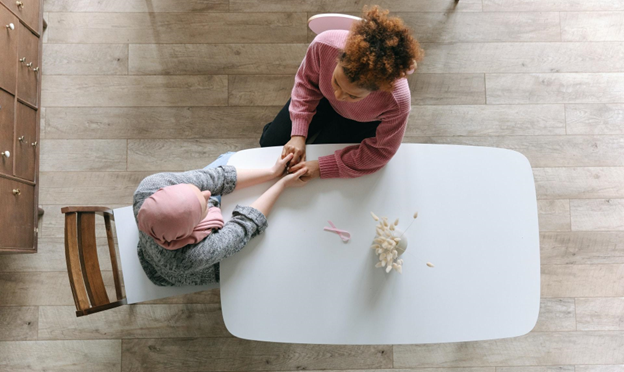Some people think that just because they are not a scientist or doctor, they are unable to meaningfully assist people who have cancer. This is simply not true, though, as there are many ways to help someone experiencing a chronic health condition that do not require a medical or scientific background. Here are some specific ways to help loved ones who have cancer.
Offer To Cook for Them
Three common side effects of chemotherapy include tiredness, nausea, and loss of appetite. All three of these symptoms can lead to someone not being able to cook or even feeling like eating. Ask your friend or loved one if they would like you to cook for them, either by bringing a home-cooked meal over to their house or by cooking a meal in their own kitchen. Of course, always ask before using their home and kitchen supplies. Chances are, someone feeling tired and stressed will appreciate the gesture, and at the very least appreciate the company. A good option is to cook a healthy meal that you know they will enjoy, perhaps a twist on a favorite childhood meal.
Offer To Clean
Everyone appreciates having a tidy house, but not everyone has the time or energy to stay on top of cleaning their living space. Let the person suffering from illness know that you are open to helping them tidy up anything they feel needs to be done. Ask in a way that does not imply that you think their home is dirty, but just that you are open to the idea should they want that.
Help With Legal Documents
People with chronic illnesses often deal with a lot of medical billing and insurance forms. This can be overwhelming to anyone, but especially to someone who is dealing with the effects of chemotherapy and other medications. Be there for them if they have any questions about their forms, and offer to make phone calls for them if you are in a position to talk on their behalf.
In addition to helping with medical forms, consider assisting with making end-of-life arrangements if their illness involves Alzheimer’s, dementia, or terminal cancer. Before they become unable to make arrangements for themselves, get in writing their wishes for end-of-life care, whether that involves staying in their own home, going to live with a relative, or entering a nursing home.
Consider Home Modifications
If your loved one wishes to remain in their own home, consider whether any home modifications need to be done to make them more comfortable. For example, if they are increasingly using a walker or wheelchair to get around, make sure the front door is accessible and that they are able to get through doorways. If they are unable to walk up and down stairs, arrange for a separate sleeping area on the same level as the living area.
If the person you are caring for works from home, a thoughtful thing to do would be to make their home office more pleasant and free of stress. With their assistance, find some ways to make their working space more ergonomic. For example, experts recommend chairs and keyboards designed for greater comfort. In addition, help them create an electronic storage system to stay more organized. You can also update and improve the room’s lighting, which can make it a much more comfortable and inviting place to work.
There are many ways to help people with chronic illnesses, which can make both you and the person with the illness feel better.
About the author:
Constance Ray started Recoverywell.org with the goal of creating a safe place for people to share how addiction has affected them, whether they are combating it themselves or watching someone they care about work to overcome it. The goal is to share stories of hope from survivors who know that the fight against addiction is one worth having, because no matter how it affects you, life can get better.
Memo24 provides a simple and reliable way to remind your loved ones to take their medication, and also alerts you (by text or email) in case the phone was not picked up. If you have any questions, please email info@memo24.net.
*: Image via Pexels
Did You Know?
Memo24 pill reminder service is an automated phone call reminder service, it is used around the world to help the elderly live a more independent life at home.
Memo24 is simple to set up and affordable, with no subscription and no hidden fees.
